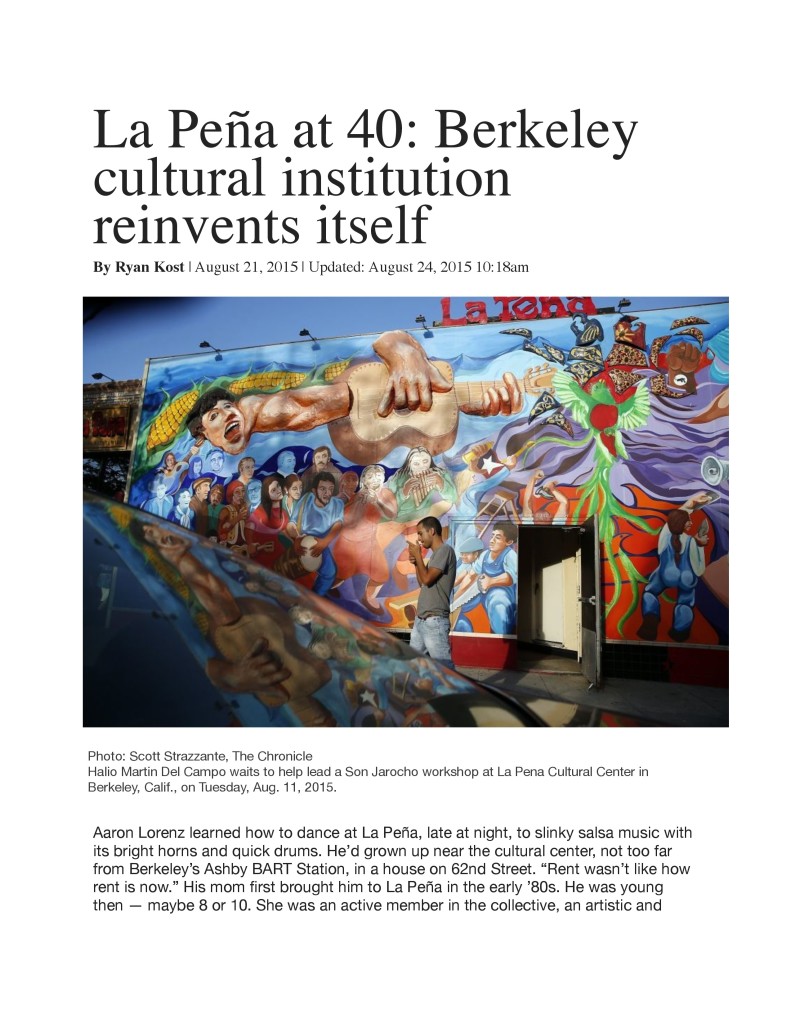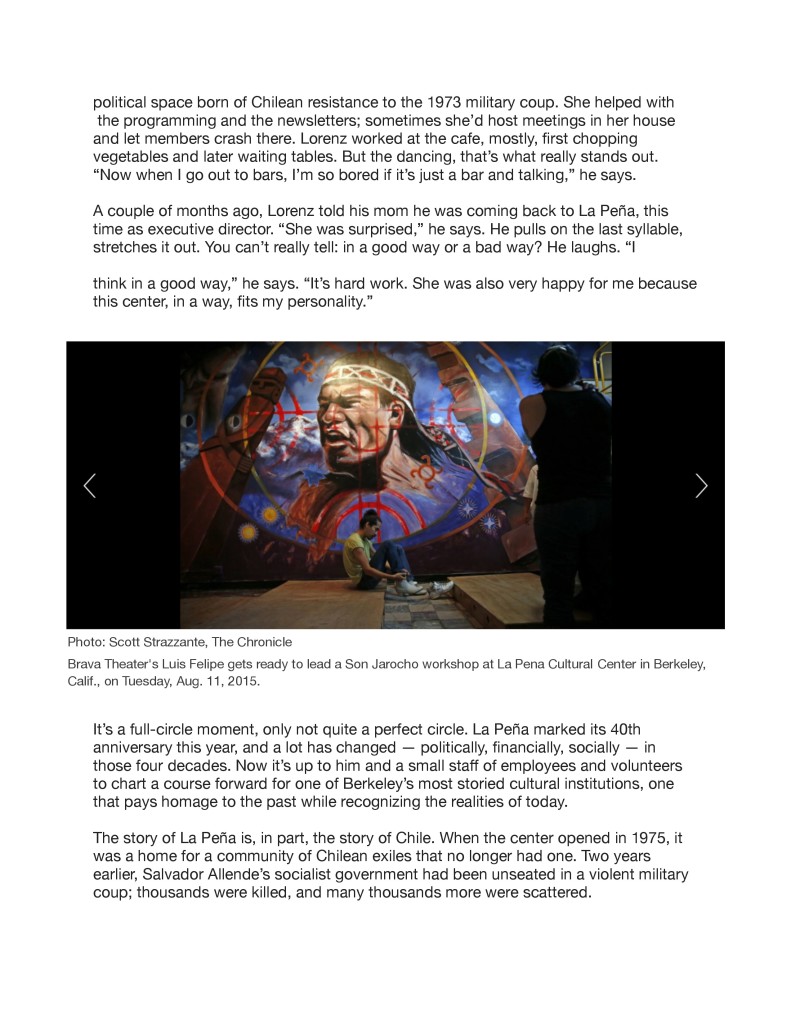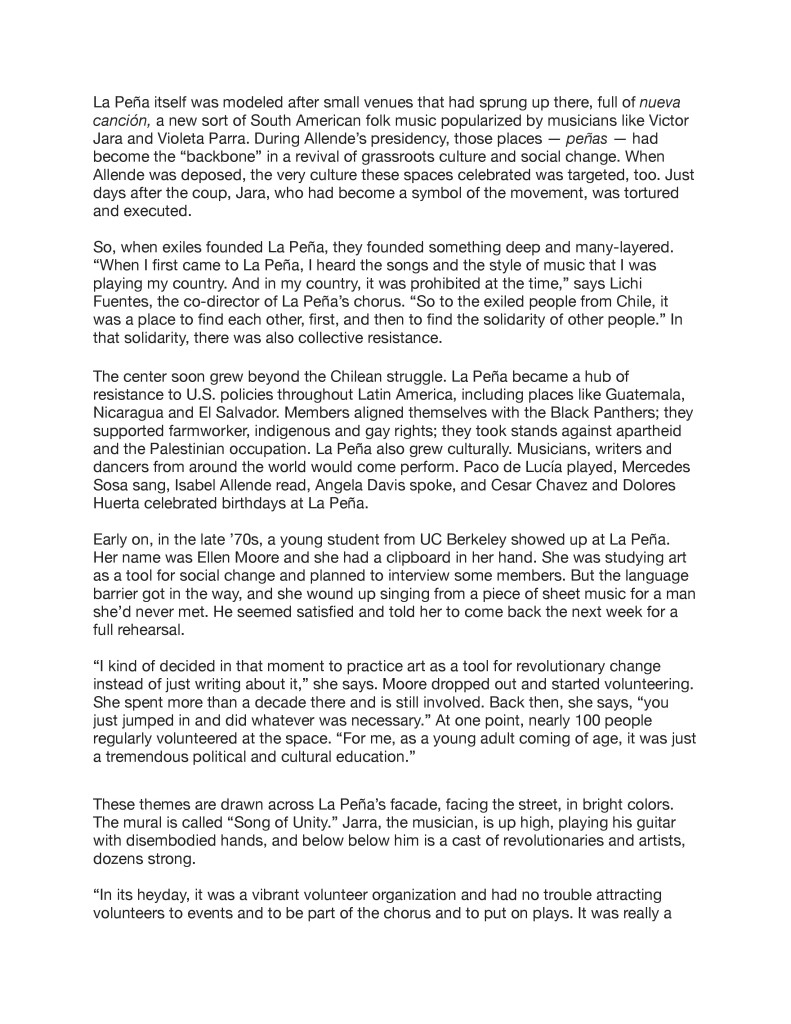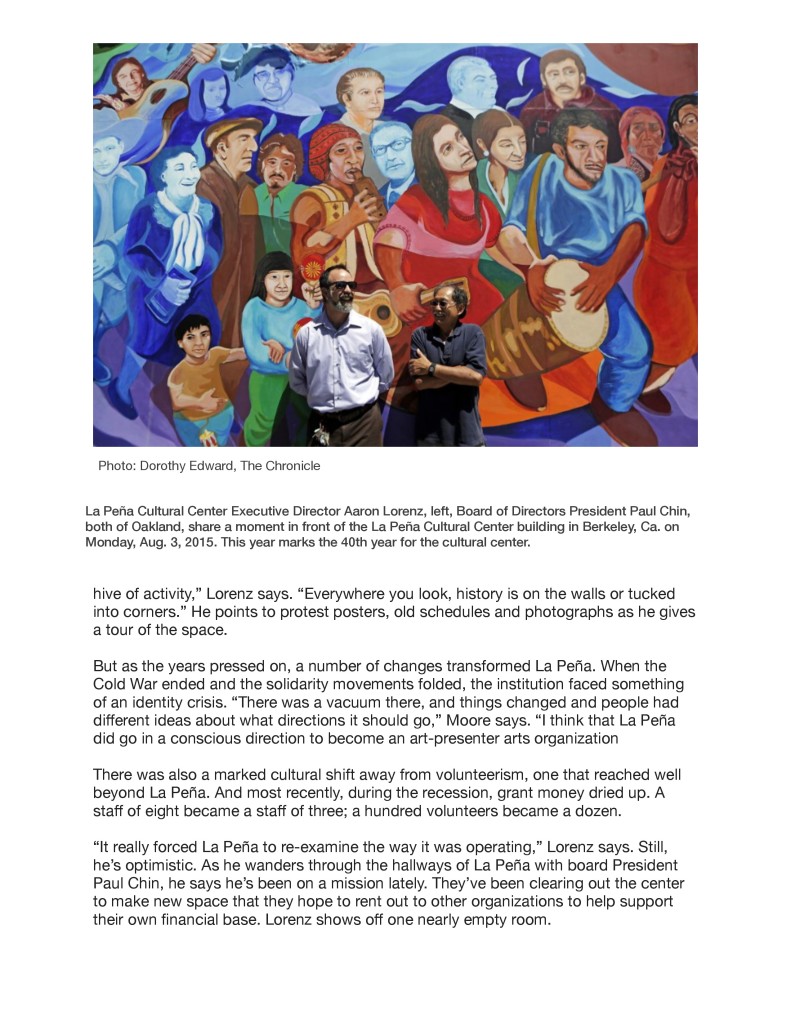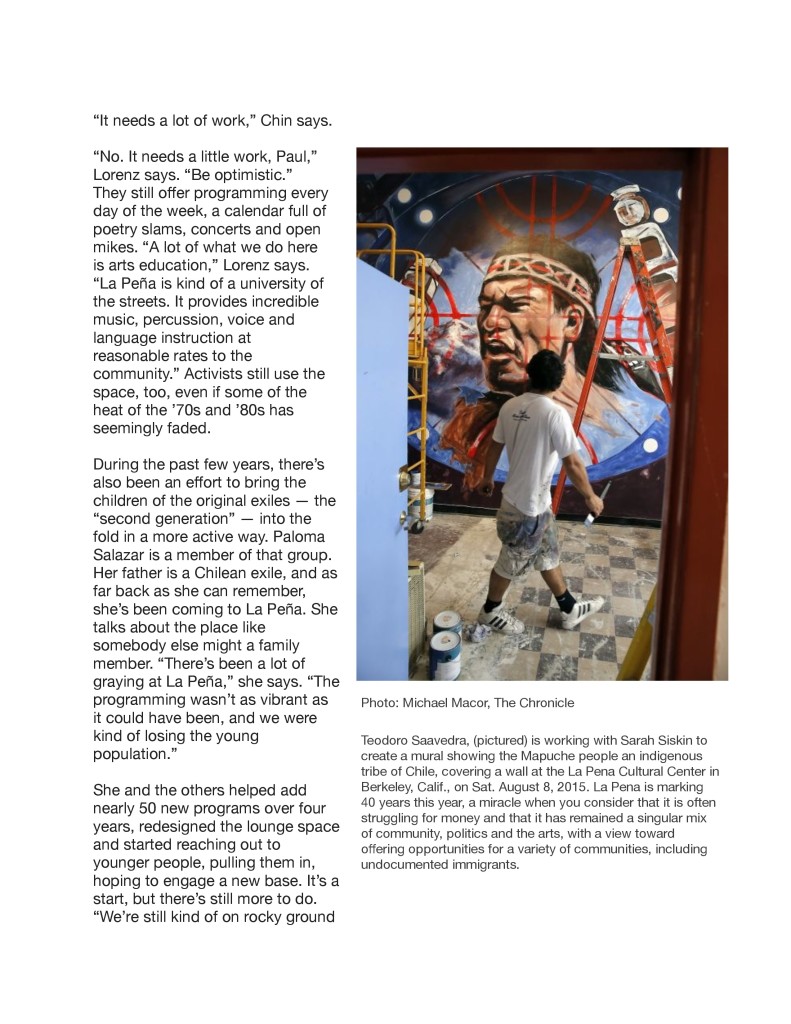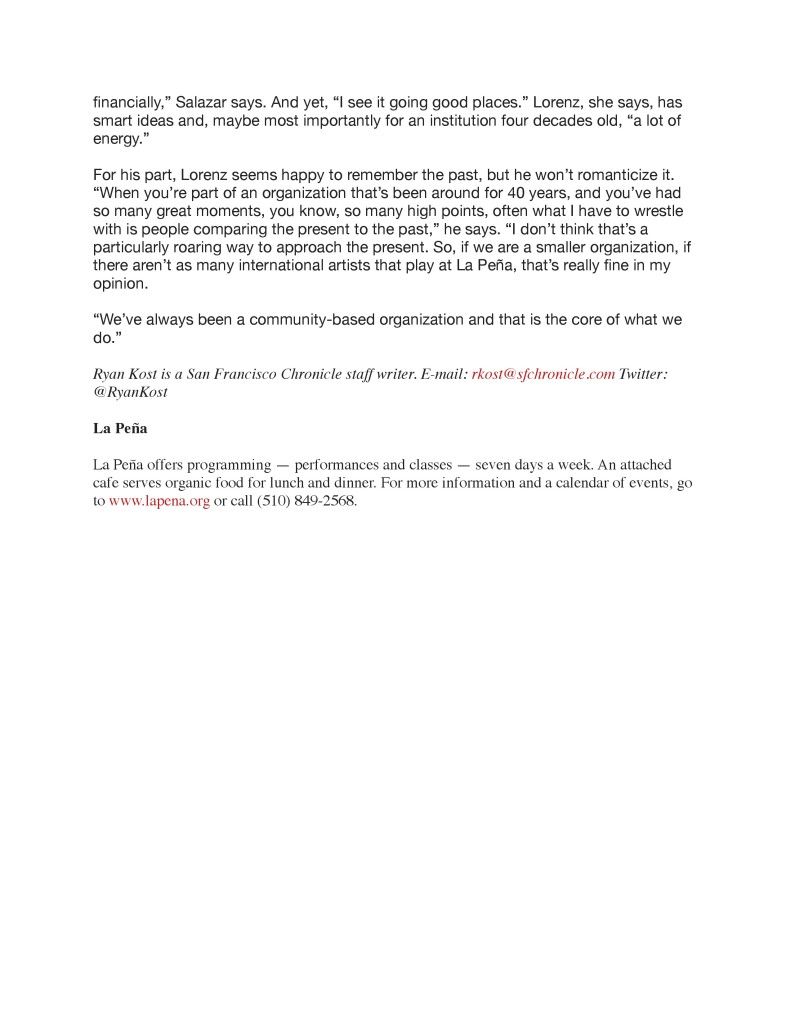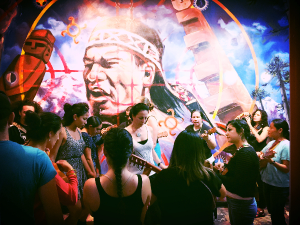We are so honored to recently be featured in the SF Chronicle, along with a photo of the week, seen below.
La Peña has a rich history – and we are so happy to have shared part of it with the SF Chronicle. The article features our executive director, Aaron Lorenz, and Paul Chin, current president of the board.
Follow their conversation, trip down memory lane, and hopes for the future!
“It’s a full-circle moment, only not quite a perfect circle. La Peña marked its 40th anniversary this year, and a lot has changed — politically, financially, socially — in those four decades. Now it’s up to him and a small staff of employees and volunteers to chart a course forward for one of Berkeley’s most storied cultural institutions, one that pays homage to the past while recognizing the realities of today.”
Find the full article below.
View the photo of the week here.
A special thanks goes out to Ryan Kost, who conducted the interview, and Scott Strazzante who took the photos.
